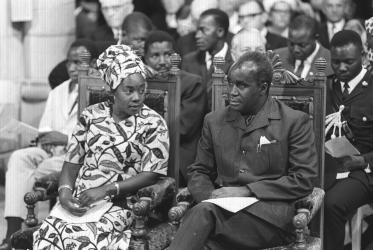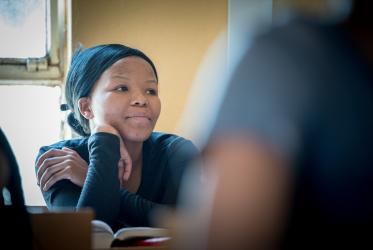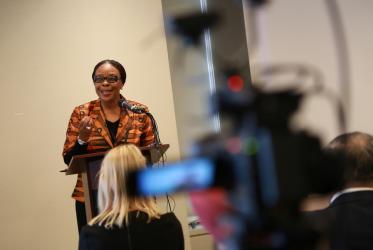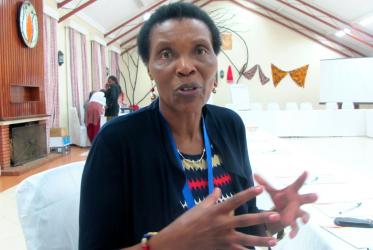Displaying 1 - 19 of 19
25 June 2021
African Churches mark International Women’s Day
09 March 2021
Young Africans are eager to grapple with challenges
09 January 2020
GEM School: integrating theology and economics
05 September 2017
Preventing incitement to violence which could lead to atrocity crimes in Africa
09 - 11 May 2016
Addis Ababa, Ethiopia
Land rights focus of panel discussion
17 November 2015
Churches have a special role to play in HIV response
18 November 2014
Churches must create and sustain healthy communities
09 April 2013
Churches engage in development dialogue on Africa
06 March 2013











